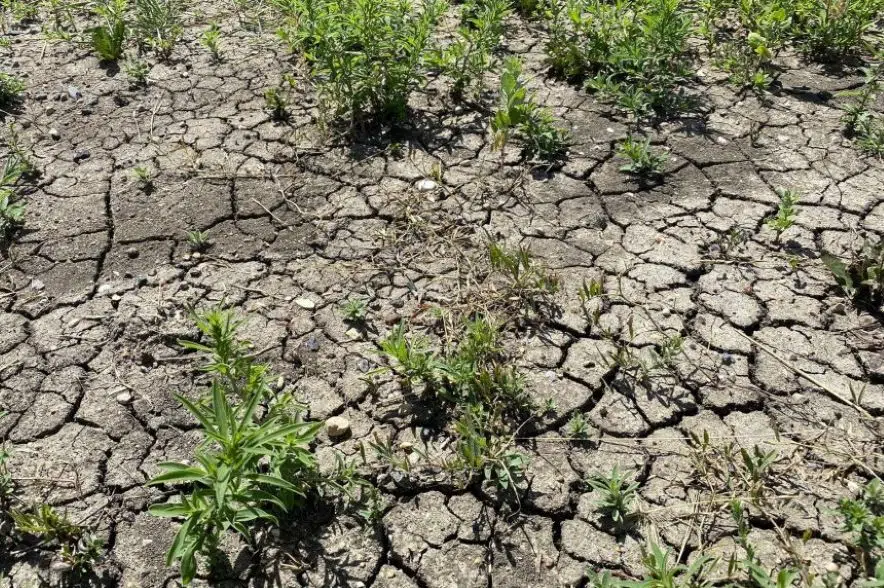The effects of the drought being experienced by some Saskatchewan producers now are reaching Ottawa.
On Tuesday, the provincial government announced it has asked the federal government to conduct an AgriRecovery assessment to see what measures can be taken to help livestock producers in Saskatchewan who are dealing with prolonged dry conditions.
“Some of the challenges and the concerns is what’s going to happen to the crops in the next little while if we don’t see some significant moisture?” Saskatchewan Agriculture Minister David Marit told Gormley.
Marit said he has witnessed how bad conditions have turned the crops.
“I have seen some canola crops that virtually aren’t going to produce,” he said. “I’ve seen some cereal crops that are really starting to burn up, and you’re seeing virtually brown spots in the field as well, which is concerning. ”
The AgriRecovery program is a federal-provincial disaster relief plan that helps producers deal with costs as they recover from disasters.
“Many producers across Saskatchewan are facing extraordinary costs to ensure their animals are taken care of,” Marit said in a media release. “We need to move quickly to consider all relief options, including an AgriRecovery assessment to help producers deal with the challenges brought about by drought.”
According to the release, Marit sent a letter to the federal government on Monday in which he also requested an early designation of the federal Livestock Tax Deferral Program. That would give drought-stricken producers facing possible feed shortages more options as they consider liquidating part of their breeding herds due to the dry conditions.
The province said western and southeastern regions of Saskatchewan have received below-normal precipitation while dealing with warmer-than-normal temperatures.
“In the hardest-hit regions of Saskatchewan, heat waves, limited rain, minimal spring runoff and successive years of dry conditions are all contributing to significant challenges,” the release said. “Concerns include water quantity, access to feed and large grasshopper infestations.”
The federal and provincial governments previously said the Saskatchewan Crop Insurance Corporation is letting farmers to divert to feed additional acres of low-yielding cereal, pulse crops, canola and flax.







